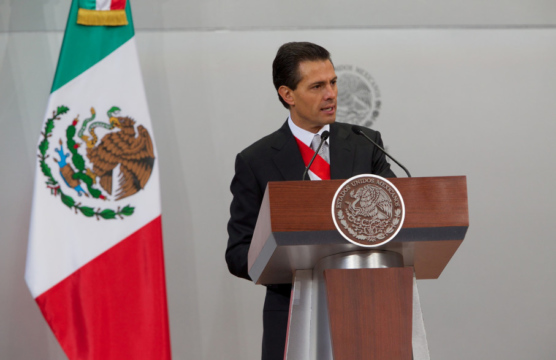A Year with a High Dose of Elections
In 2012, three presidential elections – in Mexico, Venezuela, and the United States – could alter the political map and relations in the Americas.
On Tuesday, June 24th, the Dialogue, in collaboration with the Mexico Institute of the Woodrow Wilson International Center for Scholars, hosted a panel discussion on Mexico’s secondary energy reform laws. The session featured three renowned Mexico energy experts and was moderated by Duncan Wood, director of the Mexico Institute, and the Dialogue’s Lisa Viscidi, director of the Energy, Climate Change and Extractive Industries Program.
Jeffrey Eppink, President and founder of Enegis LLC, opened the discussion, noting that Mexico has significant untapped oil and gas reserves, with 12 oil basins in the country, but only six with significant production. Over the last 100 years, 96 billion barrels of oil equivalent have been extracted in Mexico, and a whopping 160 BBOe are still left to produce, according to estimates by state oil company Petróleos Mexicanos (PEMEX). The energy reform brings the opportunity to tap these reserves with the help of private capital.
Marcelo Mereles, partner at EnergeA, noted that the secondary laws are being debated on the senate floor; yet the complexity of the legislation and lack of government resources, coupled with partisan disputes, have delayed approval. Nevertheless, he expects the secondary laws will be passed in August. The biggest threats to Mexico’s energy reform, he said, are weak and rigid regulatory institutions and the lack of human capital within regulators and PEMEX. Concerns over security and rule of law could also deter investment although Mereles believes some companies will choose to operate in the shale-rich North Eastern area of the country despite high levels of violence there.
Fluvio Ruíz Alarcón, an independent board member at Pemex, discussed the fiscal and budgetary challenges the company will face in spite of the reform. He stressed the need to lower Pemex’s tax burden and invest more in research and technology development. Public finances, he noted, will remain highly dependent on oil revenues, and PEMEX still needs greater budgetary and management autonomy.
In 2012, three presidential elections – in Mexico, Venezuela, and the United States – could alter the political map and relations in the Americas.
How will measures in Colorado and Washington affect the federal government’s relationship with Mexico in the ongoing fight against drug cartels?
Mexican President Enrique Peña Nieto marks 100 days in office. Is he focusing the beginning of his presidency on the right goals?

